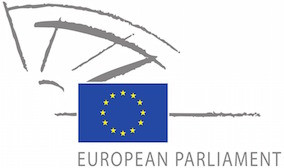Big Data and smart devices and their impact on privacy

The numerous debates triggered by the increased collection and processing of personal data for various - and often unaccountable - purposes are particularly vivid at the EU level. Two interlinked, and to some extent conflicting, initiatives are relevant here: the development of EU strategies promoting a data-driven economy and the current reform of the EU personal data protection legal framework in the context of the adoption of a General Data Protection Regulation (GDPR). In this context, and focusing on the development of Big Data practices, smart devices and the Internet of Things (IoT), this Study shows that the high degree of opacity of many contemporary data processing activities directly affects the right of the individuals to know what is being done with the data collected about them. This Study argues that the promotion of a data- driven economy should not underestimate the challenges raised for privacy and personal data protection and that strengthening the rights of digital-citizens should be the main focus of the current debates around the GDPR.
EXECUTIVE SUMMARY
EU citizens and residents and, more generally, all individuals deserving protection as ‘data subjects’ by EU law, are directly impacted by EU strategies in the field of Big Data. Indeed, the data-driven economy poses significant challenges to the EU Charter of Fundamental Rights, notably in the fields of privacy and personal data protection.
Big Data refers to the exponential growth both in the availability and automated use of information. Big Data comes from gigantic digital datasets held by corporations, governments and other large organisations; these are extensively analysed (hence the name ‘data analytics’) through computer algorithms. There are numerous applications of Big Data in various sectors, including healthcare, mobile communications, smart grids, traffic management, fraud detection, or marketing and retail (both on- and offline). The notion, primarily driven by economic concerns, has been largely promoted through market- led strategies and policies. Presented as an enabler of powerful analytical and predictive tools, the concept of Big Data has also raised numerous criticisms emphasising such risks as biased information, spurious correlations (associations that are statistically robust but happen only by chance), and statistical discrimination. Moreover, the promotion of Big Data as an economic driver raises significant challenges for privacy and digital rights in general. These challenges are even greater in a digital ecosystem with a proliferation of cheap sensors, numerous apps on mobile devices and an increasingly connected world that sometimes does not even require human intervention (as shown in the increasing development of the Internet of Things [IoT]). The flows of information on- and off line, shared and multiplied across computers, mobile devices, watches, SmartBands, glasses, etc., have dramatically increased the availability, storage, extraction and processing of data on a large scale. It has become increasingly difficult to track what is made of our data. This situation is complicated further by the wide variety of actors engaged in data collection and processing.
The numerous debates triggered by the increased collection and processing of personal data for various – and often unaccountable - purposes are particularly vivid at the EU level. Two interlinked, and to some extent conflicting, initiatives are relevant here: the development of EU strategies promoting a data-driven economy and the current reform of the EU personal data protection legal framework, in the context of the adoption of a General Data Protection Regulation (GDPR).
In order to address the issues at stake, the present Study provides an overview of Big Data and smart devices, outlining their technical components and uses (section 2). This section shows that many contemporary data processing activities are characterised by a high degree of opacity. This opacity directly affects the ability of individuals to know how data collected about them is used; it also hinders their capacity to assess and trust the manner in which choices are (automatically) made - whether, in other words, these choices are appropriate or fair. As regards smart devices, cheap sensors or the IoT, the pervasiveness of sensors and extensive routine data production might not be fully understood by individuals, who may be unaware of the presence of sensors and of the full spectrum of data they produce, as well as the data processing operations treating this diverse data. If Big Data, smart devices and IoT are often promoted as key enablers of market predictions and economic/social dynamics, data processing raises the question of who controls one’s data.
——
For the full study, see the attached document.


